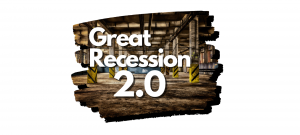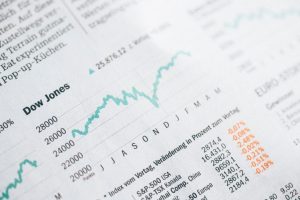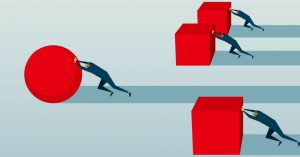
To start out, for the audience here that is old enough to remember the Great Recession of 2008, it was not a joke, to say the least. The events of the economic downturn back then were over creative financing called subprime mortgages.
Back in the early 2000s, the US housing market was booming, with home prices rising rapidly. Banks and mortgage lenders saw an opportunity to make more profits by extending loans out to their borrowers who didn’t have the best credit history or financial standing, commonly referred to as subprime borrowers. These subprime loans typically had higher interest rates, which made them more expensive for borrowers, but also more profitable for the lenders.
However, as the demand for housing continued to rise, these lenders started extending subprime mortgages to more and more borrowers, even those who had no hope of repaying the loans at all. Hence, you see the problem beginning to form here.
Furthermore, these loans were put together into a complex financial bundle called mortgage-backed securities (MBS), which were then sold to investors around the world. The problem with this was many of these securities were based on loans that were intended to fail from the get-go. Borrowers who couldn’t afford their mortgages started defaulting on their loans, which led to a wave of foreclosures pretty much all at the same time.
Ultimately, the foreclosure crisis led to a glut of homes on the market, which caused home prices to spiral out of control. As home prices fell, many homeowners found themselves “underwater,” which meant that they owed more on their mortgages than their homes were even worth. This created a cycle of more foreclosures, which led to even more homes on the market and further price declines. Many of the investors who had bought MBS-backed subprime mortgages suddenly found themselves holding worthless assets, which caused massive losses and financial instability throughout the global economy.
The collapse of the subprime mortgage market led to a wider financial crisis, with banks and financial institutions suffering significant losses. The interconnectedness of the financial system meant that the crisis had quickly spread to other sectors of the economy, leading to a recession that lasted for several years.
Jump to present day. With recent events in the regional banking sector, it’s becoming more and more important to keep an eye out on the current state of the economy. The commercial real estate market has been the primary focus. This particular part of the real estate marketplace is a critical cog of this country’s economy, and a downturn in it can lead to significant consequences throughout. Banking experts are sounding an alarm regarding a formidable threat on the horizon. In fact, this crisis has the potential to be a financial disaster like the Great Recession of 2008, or even greater.
Here are the basics: Commercial real estate is any non-residential property used for business purposes, such as office buildings, retail centers, industrial parks, and hotels. Furthermore, commercial real estate is a massive industry with trillions upon trillions of dollars in assets, and it employs millions of people in its current state.
The commercial real estate market had been booming for years, with prices steadily climbing and investors pouring money into this sector. However, the COVID-19 pandemic had caused significant disruptions in this area of the economy, with many businesses shutting down, employees working from home, and consumer spending shifting online. As a result, many commercial properties are now sitting vacant, and property values are plummeting by the day.
Now, let’s talk about the potential consequences of this downturn. When commercial properties lose value, it can cause a ripple effect throughout the economy. Property owners may default on their loans, banks may suffer losses, and investors may lose their proverbial butts, to say the least. Moreover, the loss of business revenue and jobs can cause a slowdown in consumer spending and economic growth, much like the Great Recession of 2008.
But that’s not all. Many industry leaders are also worried about the looming debt crisis within the commercial real estate market. Over the past few years, investors have been taking on increasingly risky debt to finance commercial property purchases. If property values continue to fall as they have been, many of these investors could default on their loans, which could lead to a wider financial crisis. Now, you see the problem beginning to really show itself here, and it’s very reminiscent of the crisis that began the Great Recession.
So, what can we do to prevent another 2008-like recession? Experts suggest that the government needs to step in and provide relief to struggling businesses and property owners throughout this area of the economy. Additionally, they recommend that banks and investors exercise caution when financing commercial properties.
Most financial pundits also suggest conducting rigorous due diligence with the current condition of the commercial real estate market. Banks need to ensure that they conduct thorough due diligence on borrowers and their properties before dealing loans out. This includes analyzing cash flow, market conditions, and borrower creditworthiness.
Similarly, financial experts want lenders to implement robust risk management practices. Banks should have very effective risk management practices in place to monitor and manage their exposure to commercial real estate loans. This includes stress testing loan portfolios to identify potential hazards and establishing appropriate loan loss reserves.
Also, monitoring market trends is essential. Established banking professionals suggest banks should be continuously monitoring market trends and adjusting their lending practices accordingly to prevent overexposure to high-risk areas.
To wrap up, the subprime mortgage crisis of the early 2000s was a key factor in the Great Recession of 2008. Lenders extending loans to borrowers who couldn’t afford them, and the subsequent collapse of the housing market created a ripple effect throughout the economy.
Jumping to the present day, the banking industry can definitely prevent another Great Recession from happening this time around. In hindsight, the following steps, as suggested by pundits in the banking industry, could help stave off another financial crisis like that of 2008, that’s if we all learned from our previous mistakes and don’t allow greed to get the better of us this time around. The commercial real estate market is in a precarious position at this juncture, and we need to pay attention to it in order to prevent this predicted downturn from ever taking place. A collapse in this sector could lead to massive economic consequences as we have never seen before. Let’s get this right this time around before this one blows up in our faces, please!

Hey there, amigos and amigas! I’m Paul, the pajama-wearing article writer who can bring enchantment, charm, and wit to your content. If you’re looking for high-quality content that can skyrocket your conversion rates, increase organic traffic, and establish brand authority, you’ve come to the right place!
I’m not just your ordinary content writing service provider. I’m a guy who knows how to count (well, at least when it comes to the number of pages I can write on Shakespeare) and deliver content that can put your competitors in the spotlight. My writing style is a fusion of tutorials, entertainment, internet marketing, and video games. If that sounds like a bizarre mix, that’s because it is, and that’s precisely what makes it work!
I may have started as an engineering major, but I quickly realized that my true calling was in the world of computers and writing. While my peers struggled to reach the minimum page requirement, I was busy turning in 22-page essays on English literature (cue the eye rolls of my professors). And that was just the beginning.
With my eclectic resume and vast experiences, I’ve learned a thing or two about user engagement, social media shares, and bounce rates. I’ve also owned a successful computer repair business, and I’ve helped Amazon affiliates boost their sales with my content. But above all, writing is my passion and my escape from reality. It’s a way for me to bring enchantment to the mundane and distraction from my health condition (which I won’t bore you with).
So, if you want quality content that can make your readers chuckle, think, and click that “share” button, look no further than yours truly, the pajama-wearing article writer extraordinaire! Who knows, with my help, maybe you’ll be the next big thing in your industry!
May the Force be With You!


